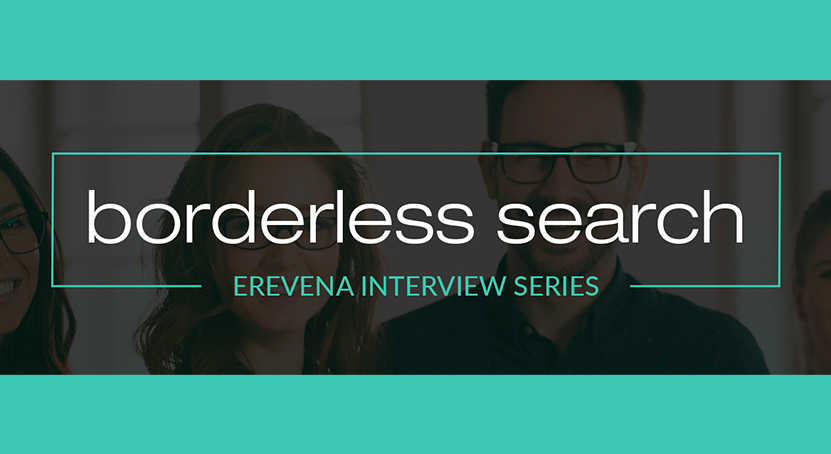With executive tenure at several global tech brands, including Microsoft, Skype and Amazon, Bryan Dove joined Skyscanner in 2015 as Chief Technology Officer, relocating to the UK from Seattle. He was promoted to CEO in 2018. He talks to Erevena, about his multiple experiences of relocating around the globe.
What might prompt you to consider relocating for a new job?
At a personal level, I have always had a desire to see more of the world. This probably stems from a fairly sheltered childhood in New York and Arizona, where family exploration extended no further than a 6 to 7 hours radius in the car. I yearned to meet new people, in new places. My first long-term experience of overseas working was in Montreal for six months. The culture and climate were very different to anything I’d experienced before and I was excited by it all. I’ve since worked in India, Europe, China and across the US, never losing that excitement and enjoyment of meeting people from different backgrounds. I find Europe especially interesting in terms of its contrast with the US; it is far more of a cultural melting pot than the US.
When I’m looking for roles, I consider the most challenging and interesting problem that I’ll be working on. When you remove the constraints of location, you can pursue a wider range of fascinating opportunities for solving complicated problems, learning, diversifying skills and exploring new countries. This exploration will continue to pay dividends throughout your career, especially in regard to cultural diversity in leadership, giving you outsized opportunities to develop by being open to jobs in different parts of the world.
How would you describe the impact of relocation on you personally?
Whether you are travelling alone, with a partner, your family, or even your dog, there are commonalities when it comes to being 3,000, 6,000 or 9,000 miles from family and friends back home. It is far more disorientating than people expect. You lose context in that you are no longer sharing things you’ve become used to, like the gym, social activities, day-to-day news of your friends’ families. Distance makes you feel disconnected and it takes a concerted effort to keep up these relationships. It is important to realise this early on because it doesn’t really hit you until six months or so after the move.
Those first six months are fairly chaotic as you work out the basics, such as where you live, exercise routines, schooling, and more. It’s only when this settling-in stage is over that you start to feel the loss of your social connections back home. That’s why I’d urge anyone relocating to start building their social network as soon as they can, perhaps through work initially, or, if you’ve got children in school, through other parents. It can take up to 12 months to build a new social fabric, so don’t wait. Make this a priority as soon as you can.
What key piece of advice would help to ease the transition?
Don’t neglect your family. If you’ve been parachuted into a senior role, you’ll be expected to make an impact on the business fast. You’ll have to quickly get to know your colleagues and the business. With all this going on, it’s easy to forget to invest in your family, yet it can be much tougher on them than it is on you. After all, you’re receiving a boost from being at work and getting to grips with new challenges. It’s not always the same for wives, husbands and children who don’t have that same workplace structure.
I approach this by making an explicit commitment to family time. It’s important to treat this time as sacred – whether it’s dedicated date nights or weekend activities. Schedule them and view them as you’d view a business appointment. You wouldn’t cancel an all-hands company meeting at the last minute, so don’t do the same with this dedicated family time. This not only helps your family to settle in and start to enjoy their new life but relieves work stress too.
What do people struggle to adjust to on relocating to a new country?
Unless you’re relocating from San Francisco or New York, you’ve got to get your head around living in a much smaller space than you’ve probably been used to. Be thoughtful about what you’re planning to bring. That fantastic piece of furniture may simply not fit. Beds configure differently so you can’t find matching sheets / mattresses etc – it’s a small point but can create a big headache.
If you are moving to soak up the experience of a new city, it makes sense to compromise on living space to save on commute times and avoid significant extra costs such as cars.
What cultural differences have you noticed?
It might come as a surprise to hear that I’ve found it cheaper to go out in London than in New York. It’s also incredibly easy – and relatively inexpensive – to travel elsewhere in Europe. So, if you’re coming to enjoy the European lifestyle, I’d recommend prioritising travel. One big cultural difference between London and the US is that it doesn’t feel as friendly here. There is a brusqueness about interaction with strangers in London for mundane elements such as travel or picking up a coffee that can be disorientating. I should add that in other places in the UK, such as Scotland where I spend time, people are incredibly welcoming.
Do you approach your role differently between the US and the UK?
There is no real difference in my approach, but there is a fundamentally different point of view on the work-life balance. In the US, there’s a fairly consistent work culture from company to company, with similar vacation models and compensation. Within five minutes of a social gathering, people will ask about your job – it’s part of the American identity. That’s not the case in the UK and across Europe. Here, your work is separate from your home life. People simply don’t want to talk about their jobs or ask about yours once you’ve left the office.
I would describe the UK workplace as poly-national, with 70+ different nationalities. This is very different to the American workplace. As a business leader, I must be able to communicate effectively in this diverse context, to empathise and adapt to different cultural nuances. There are new skills to navigate and it is important to be humble and open to learning.
Share this article:











